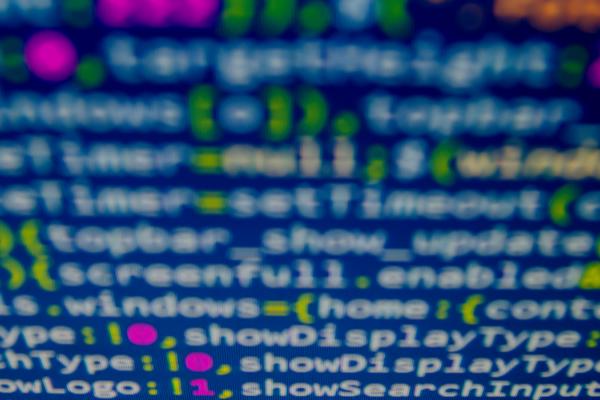FRANTICALLY GRABBING last-minute items, I rush out the door to get my middle-school son to his pregame warm-up. “Oh, don’t rush; it will only take us 25 minutes to get there,” says my son. Surprised, I question where he got that information. Looking up from his phone, he replies, “Google sent a notification on my phone since my calendar has the game with location.” With some marvel in his tone, he remarks, “Every morning Google Assistant tells me how long it will take the bus to get to school.”
Humans have always shared information with each other, but the advance of digital media altered the time and geographic constraints that once shaped our historical patterns of communication. This transition ended the “Gutenberg era,” a period of human communication marked by a dependency on print, authorship, and fixity, and launched us into an era of communication marked by openness, collaboration, and easy access to information.
Despite the rapid pace at which we churn through this information, our new communication styles are also shaped, paradoxically, by permanence. Every share, post, or comment is archived, creating an online trove of information that identifies every person and their connections: where we get our news, what we look like, what sports team or social causes we support, who “likes” our church on Facebook, and, in my son’s case, our current whereabouts, our travel route, and destination points.
The internet is forever
In the world of digital ethics, the “endless memory of the internet” has recently attracted a lot of attention. How do we live in a world that increasingly does not forget?
In response, many digital experts suggested we reclaim the practice of deleting or erasing past data. “Forgetting plays a central role in human decision-making,” writes Viktor Mayer-Schönberger in Delete: The Virtue of Forgetting in the Digital Age. “It lets us act in time, cognizant of, but not shackled by, past events.” Without the ability to forget, Mayer-Schönberger argues, individuals and communities are forever tied to past events and may be unable “to live and act firmly in the present.” Sadly, we are all too familiar with reports of teenagers committing suicide over an image or post shared widely or adults losing their career over similar incidents.
Other scholars—including privacy expert Meg Leta Jones, author of Ctrl+Z: The Right to Be Forgotten—have argued for stronger legal options that would require material to be deleted and place limits on data collection. Many European countries already have such laws and regulations intended to shorten the internet’s long memory.
Yet Christians must have a different response. While the digital cataloging of our lives often reinforces a notion of stagnation and accumulation, the Christian call is a call of transformation and change. We are an imperfect people striving to live godly lives. Our inevitable failures—including those archived online—require reflection and recalibration on a daily basis. This is both the gift and struggle of Christian life.
And this presents contemporary Christians with complicated questions: As sinful people prone to personal, social, and institutional failures, how do we react to a cultural shift that forever keeps track of those sins? Is deleting information about past mistakes the same as engaging in the practice of confession? And in a world where forgetting has become a luxury, what does Christian forgiveness look like?
Ctl+Z vs. transformation
When early Christians talked about the ability to radically change one’s life and path, they often used the Greek word “metanoia,” meaning repentance or conversion. Though metanoia translates as a “change of heart/mind,” Christians believed such a change was not just a feeling or a thought, but something lived out through changed actions or reformed behavior—an ongoing process that had to be continuously reaffirmed with an integrity of belief and practice.
But unlike the digital concept of deletion or erasure, the concept of metanoia is not about forgetting. In fact, the notion of metanoia or repentance requires a truth-filled inventory of how one has behaved in the past and sincere action toward change.
For an example of what metanoia might look like in an age of the endless internet memory, consider the case of former NFL football player Ray Rice. In February 2014, footage was aired from a hotel surveillance camera showing Rice dragging Janay Palmer, his unconscious fiancée (now wife) out of an elevator. Several months later, a second video of the incident, from cameras inside the elevator, was released, showing Rice punching his fiancée in the face. The videos have millions of views on YouTube and were widely shared by news outlets. Public reaction to the footage led the Baltimore Ravens to release Rice, and the NFL suspended him.
What Rice did was inexcusable. He committed an act of domestic violence. It was sin and it was wrong. The footage of Rice’s sin likely will be archived on the internet forever. But in the aftermath, has Rice experienced metanoia? He apologized publicly and pledged to change his behavior. But we know that abusive behavior is a pattern likely to repeat itself without treatment or intervention. Rice has demonstrated activity toward personal change including counseling and outspoken advocacy against domestic violence. With Palmer by his side, he begged media outlets to stop showing the footage, not because he wasn’t guilty, but out of respect for their privacy. Yet Rice doesn’t wish to “delete” his sin from collective memory; he wants to use his story to raise awareness about domestic violence and save others from what Rice describes as his “worst decision.” “I want my story to be told,” said Rice in a 2016 interview. “There’s a lot of detail to it, but I want it to be told. I want to help as many people as I can.”
This is often where Christian discussion of metanoia ends: with individual acts of moving away from sin and toward God. But as theologian Rosemary Radford Ruether reminds us, sin also exists on a communal level, including corporate sins such as racism and sexism in which we all participate unintentionally and often uncritically. For Ruether, metanoia means “we not only have to confront our own sadistic and masochistic tendencies, but also have to unmask the claims of the dominant culture that misleads us about the nature of good and evil.” In other words, if there is both individual and structural sin, there must be both individual and structural conversion.
Ruether’s understanding of metanoia pushes us to look at structural forces at work in Ray Rice’s story: Despite his public apology and apparent changes in behavior, Rice has not returned to the NFL—even though other players have since been convicted of similar crimes and have only been suspended for a single game. Some have argued that Rice hasn’t returned to the NFL because he lacked skill, but we cannot be naïve: In the context of a culture seeking someone to blame for our seeming inability to stop sexualized violence, the viral footage of Rice provided an easy scapegoat. Furthermore, many sports commentators noted that the racialized depictions of Rice and his relationship evidence deeper issues related to who gets punished for violence against women—not to mention economic and sexist motivations behind the NFL’s inability to uphold a zero tolerance policy on domestic and sexual violence. Or as Ruether might say, to the best of our knowledge, Rice has confronted his own sin, but the racism and sexism embedded in the sports industry is alive and well.
I see you seeing me
Back in the early days of the web, writes digital media scholar Lisa Nakamura, “internet utopians claimed the internet would give everyone the power to surveil, to see and not be seen, to become a bodiless and thus unseeable user. Instead, we have become more visible and trackable than ever.” Obviously, this increased visibility isn’t all bad: New technology allows grandparents to meet a new baby via video call, transgender teens to find supportive communities, and Black Lives Matter advocates to organize nonviolent protest—all significant and positive outcomes.
But our visibility on the internet goes beyond the information we actively share. By using services such as smartphones, iTunes, credit cards, Instagram, or search engines, we agree to let these companies collect data from us: the programs we open, links we click, friends we follow, GPS locations we generate, and any personal data we use to create a profile, such as our age, race, or gender. And this data becomes a valuable product that is sold to companies who can tailor a product to your interests or generate the kind of content that keeps you returning. This is partly why social media platforms are designed to invite sharing: The more we share, the more data is generated, and the more profit is made. In other words, the advance of digital culture simultaneously launched an economic system in which businesses seek profit and we seek personal and community connections.
Dataveillance, as this process is called, is often viewed as harmless or at least morally neutral. Yet allowing companies to collect bulk information about ourselves serves particular social structures of power—structures that perpetuate deformed economic and instrumentally driven views of each other and ourselves.
A similar dynamic is at work when we engage with our peers online. As users of social networks, we begin to prize measurement—likes, shares, and followers—over relationship. When we up-vote a Reddit sub-thread, “like” a friend’s post, post only positive feedback, or gang up on comments counter to one’s political views, we participate in a form of social surveillance that often maintains power differences and reinforces offline inequalities.
But as Ruether reminds us, metanoia happens when we actively disrupt these processes and unmask these distortions of relationship. For example, we might disrupt the use of personal data for economic profit by permanently changing the settings on our web browser, turning off our geo-locators, using search engine services that are not beholden to advertising dollars, or seeking out information rather than accepting only what is in our newsfeed. We can also resist airbrushing our posts in ways that further entrench harmful cultural narratives around race, gender, and economic success; reconsider how we maintain friendship rather than accepting default settings; and resist joining in comment threads to reinforce our own opinion or denigrate another’s. Through these countercultural practices, we can begin to reshape social networks and digital media systems to promote change.
Forgive, not forget
Another example of metanoia in the digital world is the site Fat, Ugly, or Slutty, a user-run gaming site that holds online gamers accountable for their sexist and racist comments and actions. The site publicly posts negative messages women gamers receive, ranging from fat shaming to death threats. In an exchange chronicled by Lisa Nakamura in Feminist Surveillance Studies, a male gamer found his name published on the site. He asked to have his information removed, as he says he was young, did something stupid, and would like “to not be reped [represented] in that way.” He also notes that “I learned my lesson.” The site moderator decided to remove his username from the post, but leave the information published, a response that acknowledges the potential for personal transformation but also promotes continued social awareness that such behavior is wrong.
As sinful people our personal, social, and institutional failures go viral and remain archived for future generations to uncover. “To be forgotten” is a luxury in our digital culture—one for which Christians need not strive. Rather, we (and God) are better served by transforming our lives in an ongoing fashion toward practices of justice and mutuality. Metanoia rejects erasure of sin in favor of accountability on personal and systemic levels.
The delete key does not and cannot forgive. But we can and do in ways that renew and restore relationship with others and God.

Got something to say about what you're reading? We value your feedback!

